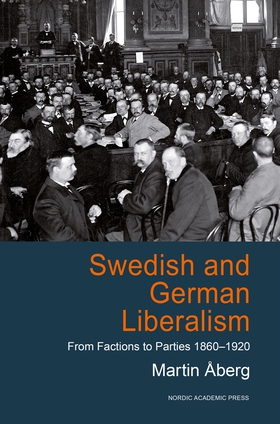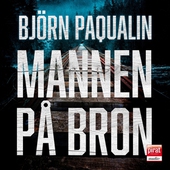
Lägg till önskelistan
Swedish and German Liberalism: From Factions to Parties 1860-1920 e-bok
Pris
159 kr
At the start of the twentieth century, political parties had the potential to focus grass-roots interest in the development of modern, democratic nation-states. Yet all the new parties were met with suspicion across Europe, particularly among liberals. These popular misgivings and the way the liberals nevertheless managed to build a party are the subject of this book.
In Swedish and German Liberalism, the historian Martin Åberg argues that because of liberalism’s individualistic traits, whi...
E-Bok
159 kr
Pris
Förlag
Nordic Academic Press
Utgiven
27 Februari 2015
Genrer
Historia & Arkeologi, Fackböcker
Språk
English
Format
epub
Kopieringsskydd
Vattenmärkt
ISBN
9789187121258
At the start of the twentieth century, political parties had the potential to focus grass-roots interest in the development of modern, democratic nation-states. Yet all the new parties were met with suspicion across Europe, particularly among liberals. These popular misgivings and the way the liberals nevertheless managed to build a party are the subject of this book.
In Swedish and German Liberalism, the historian Martin Åberg argues that because of liberalism’s individualistic traits, which left liberals less susceptible to political organization on a mass basis, party members had to come to an uneasy compromise between individual and collective action.
Åberg compares two regions – Värmland in Sweden and Schleswig-Holstein in Germany – which historically both had a significant liberal presence. Despite its organizational shortcomings, liberalism in Sweden paved the way for the peaceful democratization of the state. In Germany, however, liberalism turned conservative, foreshadowing the extreme nationalism and Nazism that was to come. Åberg argues that the peculiarities of organizational behaviour go some way to explain the very different outcomes.
Svensk informationstext:
Vid tiden runt sekelskiftet 1900 började de moderna partisystemen falla på plats runt om i Europa. På många håll fanns dock en djupt rotad misstänksamhet mot politiska masspartier. De ansågs bl.a. medföra korruption, missämja och konflikter. Frågan bar också stark prägel av spänningen mellan individualism och kollektivt handlande. Särskilt inom sekelskiftets liberala rörelser var detta drag påtagligt.
Inför eftervärlden framstår liberalerna också, inte bara i Sverige, som svagt organiserade sett i ljuset av det vi idag uppfattar som de ”normala” organisationsformerna för politiska partier. I Swedish and German Liberalismmenar historikern Martin Åberg att denna bild anakronistisk. Svaret på frågan om liberalismens organisationsmönster bör sökas på ett djupare, ideologiskt plan – i 1800-talets avvägningar mellan individuellt och kollektivt handlande.
Det mönster som författaren skönjer i boken är ingalunda unikt svenskt. I denna jämförande studie av Sverige och Tyskland visar Åberg, med hjälp av två regionala fallstudier, hur svensk och tysk liberalism uppvisade påfallande likheter med varandra när det gäller organisationsmönster.




